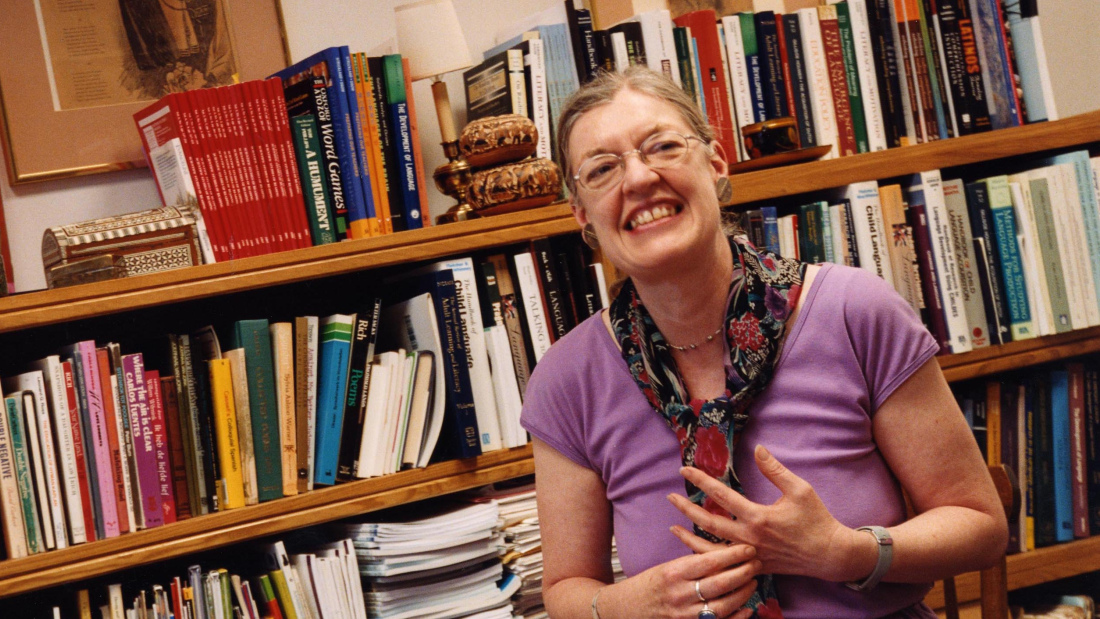A Language and Literacy Pioneer

Over her lengthy career, Professor Catherine Snow has opened our understanding of how oral language skills are acquired and how language relates to literacy outcomes. She’s provided an invaluable roadmap for countless teachers seeking to improve reading instruction and knowledge-building and to nurture a love of reading in their students. It’s no wonder that Snow’s work has been lauded for its usefulness and accessibility by educators — or that it has found its way into schools around the country.
Catherine Snow has helped spur a quiet revolution in the way children and adolescents learn to read — and read to learn.
"Catherine Snow's work ranges from detailing the contexts and processes by which children do — or don't — acquire the register of academic language, to recent interventions that demonstrate how students develop the language and knowledge of academic disciplines," said P. David Pearson of the University of California-Berkeley, upon bestowing Snow the 2011 American Education Research Association’s Distinguished Contributions to Research in Education Award. "She has provided a compelling example of how to bridge the theory-practice gap in ways that inform both sides of the divide."
As American educators grappled with how to teach English as a second language, Snow undertook important research to gain a better understanding of second language development and the role of the home in influencing a child’s English and Spanish vocabulary. Her understanding of the value of bilingualism was a message that resonated with audiences beyond educators as her research would inform language policy issues in the United States and developing nations, and testing policies. In 2002, she presented research on English as a second language on C-Span.
Much of Snow’s research has focused on early literacy and bilingualism, but she shifted her attention in the past 15 years toward adolescent reading, coauthoring a seminal report, Reading Next: A Vision for Action and Research in Middle and High School Literacy, that garnered significant attention. "Educators must . . . figure out how to ensure that every student gets beyond the basic literacy skills of the early elementary grades, to the more challenging and more rewarding literacy of the middle and secondary school years," she wrote, noting the great importance of teaching comprehension.
Snow also plays an important role in creating the tools to improve middle school-aged literacy outcomes. For example, in her Word Generation project, which addresses concerns about vocabulary development in sixth-, seventh-, and eighth-graders, Snow collaborated with the Boston Public Schools and the Strategic Education Research Partnership (SERP) to establish curricular tools that enhance literacy and teaching. The curriculum has since informed efforts in other cities, playing a role in New York City’s Middle School Quality Initiative, for example. In its creation, Snow worked directly with teachers to brainstorm topics and pilot early efforts of Word Generation, which launched in 2015 and has since developed more elaborate, helpful guides and supplementary materials, continuing to grow in popularity. – Jill Anderson
Learn More and Connect
Register for Catherine Snow's two-week online workshop Learning to Talk by Talking: A Developmental Approach to Maximizing Language and Literacy Skills.
Read more about Word Generation at Usable Knowledge.
Learn more about the Language and Literacy master's program at HGSE.
